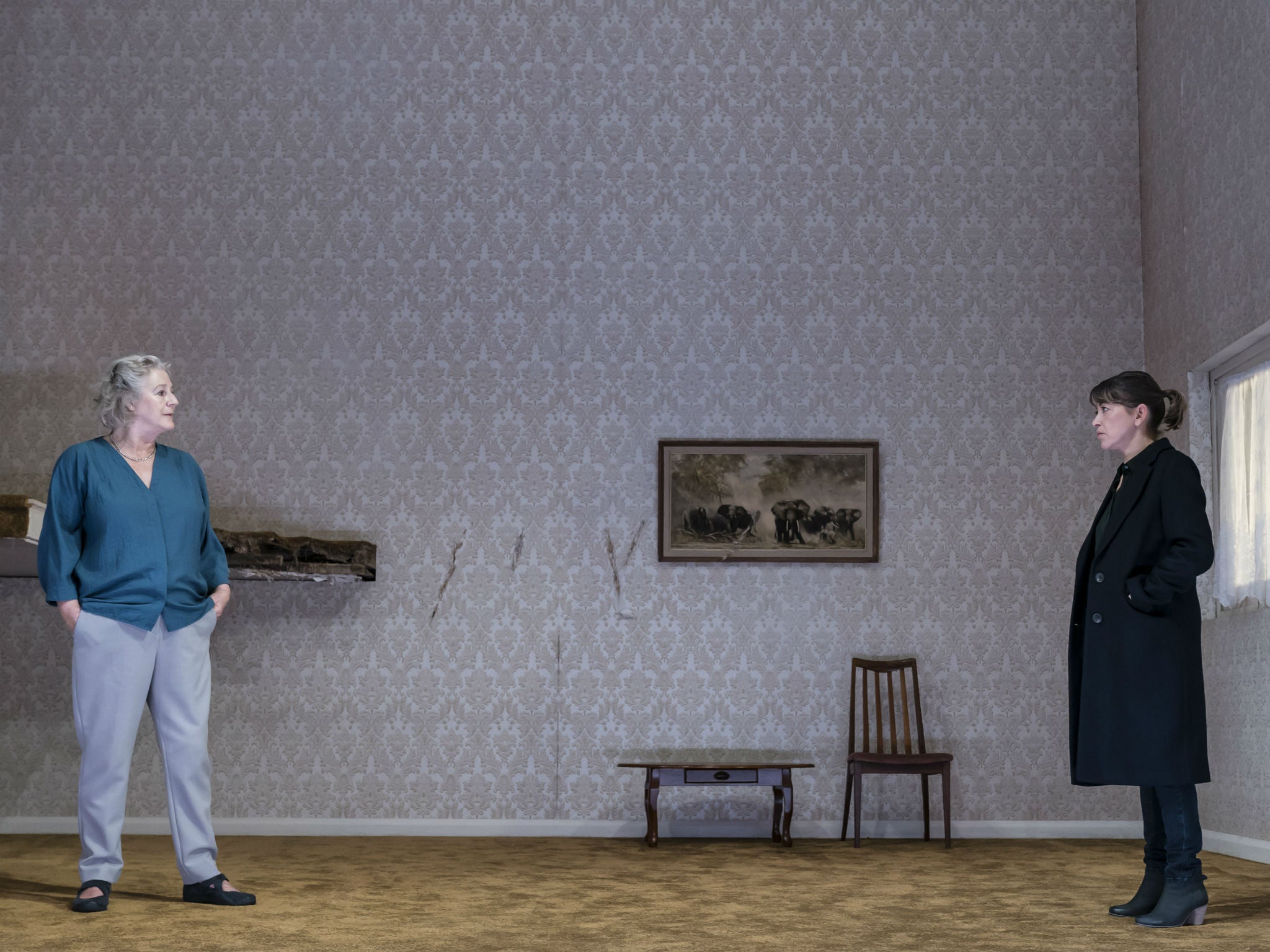The Cane, Royal Court, review: Mark Ravenhill’s new play is clever, witty and slyly provocative
A baying mob of schoolchildren gang up on a teacher over his past use of the cane, in a play that asks if it’s fair to judge past actions by the standards of the present

Your support helps us to tell the story
From reproductive rights to climate change to Big Tech, The Independent is on the ground when the story is developing. Whether it's investigating the financials of Elon Musk's pro-Trump PAC or producing our latest documentary, 'The A Word', which shines a light on the American women fighting for reproductive rights, we know how important it is to parse out the facts from the messaging.
At such a critical moment in US history, we need reporters on the ground. Your donation allows us to keep sending journalists to speak to both sides of the story.
The Independent is trusted by Americans across the entire political spectrum. And unlike many other quality news outlets, we choose not to lock Americans out of our reporting and analysis with paywalls. We believe quality journalism should be available to everyone, paid for by those who can afford it.
Your support makes all the difference.After 45 years as a dedicated deputy headteacher, Edward is looking forward to the forthcoming – and unprecedentedly extensive – celebrations that are to honour his retirement. So how do we account for the brick that has been thrown through his window or the fact that a baying mob of schoolchildren has made it impossible for him and his wife to leave their home in six days?
It quickly emerges that, in the course of researching a pageant about his career, the students have uncovered evidence which proves that – before the practice was outlawed in 1986 – it was Edward’s particular duty as the deputy head to inflict corporal punishment.
Now his estranged daughter Anna has arrived, complicating things due to the emotional scars from her own past as well as her ideological rivalry with Edward.
This is Mark Ravenhill’s first play in several years, and some fans may have been hoping for more graphic fare from the author of Shopping and F**king. But Ravenhill admirably refuses to mete out the old strokes.
Adroitly directed by Vicky Featherstone, The Cane strikes me as a clever, witty, slyly provocative three-hander that puts an intriguing and revealing perspective on the present. The play takes an antiquated, barbarous – then fully legal – practice and speculates over how today’s children would respond to the idea that the older teachers once officiated over this prime ritual of control. The Crane also asks if it’s fair to judge the past, with its different values, by the standards of the present. There is much that is germane to the #MeToo movement.
Anna is frighteningly fluent in speaking in the “best practices” jargon of the modern academy. She advocates that Edward offer an apology and suggests the formula: “I was working at the time within an accepted practice but with hindsight I regret my actions and ask the school community to forgive...” Nicola Walker is brilliantly subtle at suggesting that Anna is up to a double game. Inspectors have recommended that the school should be classified as “failing”. Is her advice designed to help or destroy him?
It’s a telling, forlornly comic touch that, when Anna describes corporal punishment as “institutionalised violence”, the teacher confesses that the definition leaves him feeling less than before: “Diminished to discover that all along I was not an individual but an institution.” “It’s what will save you,” she replies.
One signal virtue of the play is that your view of the characters keeps shifting. Edward (Alun Armstrong) had voted for the abolition of caning and admits to feeling some guilt and shame about doling out the punishment. But Armstrong also powerfully embodies the sudden, unthinking outbursts of savage misogyny in this crusty hasbeen. There are hints, too, that he feels bound in some code of “honour” with previous custodians of the cane. He should have burnt all evidence of this form of punishment when it was made illegal; instead, they have cause to fear what eager student sleuths, researching his life for the pageant, might find.
I’m not sure that I properly understood the hostility between the daughter and parents, although there’s a black wackiness to its extremity that I relished: for example, the drab living room wallpaper still shows the mark where the precocious infant Anna hurled an axe at her father. And Maggie Steed is in wonderfully comic form as Maureen, the mother, spluttering and harrumphing like some sorely tried suburban diva and slapping on the war paint for a Sunday morning visit from the headteacher who never comes.
The Cane asks who is right: Maureen, who contends that youth nowadays are “snowflakes” who “hunt out anybody’s grievance and claim it as their own” because they can’t stand that the past wasn’t just the same? Or Anna, who claims that young people today are sensitised to grievance because they’re much more aware? Very enjoyable and stimulating.
Until 26 January, royalcourttheatre.com
Join our commenting forum
Join thought-provoking conversations, follow other Independent readers and see their replies
Comments